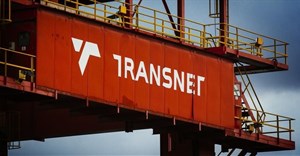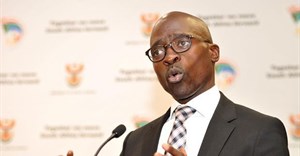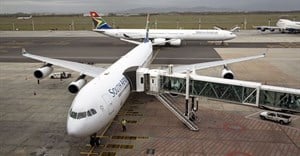Trending



 Does anyone know what content is any more?Justine Drake
Does anyone know what content is any more?Justine Drake

Elections 2024
Jobs
- Introduction to Investment Products Specialist Johannesburg
Time for Ramaphosa to knuckle down and fix the economy

Investors assessing the country’s progress over the coming months must ignore the political noise and look instead to the key metrics to judge government’s effectivity, says Yolanda Naudé, Citadel head of fund research and portfolio manager.
“For instance, President Cyril Ramaphosa’s biggest achievement since winning the ANC National Elective Conference last year has been getting elected as president, placing competent leaders into crucial positions and restoring confidence to some extent in government,” she says.
“However, very little else has changed. Ramaphosa has addressed the low-hanging fruit, but without the hard data to support optimism, business and consumer confidence will see a further correction, especially as VAT and fuel price increases mean less money in consumers’ pockets.
“He now needs to seize the opportunity to get South Africa’s house in order while the global economic environment still remains supportive – and fast,” she warns.
South Africa by the numbers
Examining the numbers, Naudé states that the country’s scorecard paints a grim picture, particularly in the areas of unemployment, inequality and poverty.
Firstly, in a population of 57.7-million people, the official unemployment rate remains at 27.2% – an especially frightening number when compared to emerging market peers such as Brazil with 12.3%, India with 3.5%, China with 3.9%, Russia with 4.7% or Mexico with 3.5%.
Of greater concern, she says, the unemployment rate for youth between the ages of 15 and 34 years is an overwhelming 53.7%, leading to greater potential for civil unrest and crime.
Next, Naudé notes that the World Bank ranks South Africa as one of the most unequal society in the world. This inequality means that the poorest 50% of households in South Africa currently earn just 8% of total household income, while the wealthiest 10% of the population account for about 55%.
Finally, assessing the country’s overall prosperity and wealth, she observes that South Africans’ average income per person has been decreasing since 2014, as average economic growth of only 1.1% per year over this period has been consistently outpaced by population growth of about 1.6% per year.
“South Africa is not a rich country by global standards, and the cake has even been shrinking over the past four years, while the global economy by comparison has achieved growth of around 3.5%.
“To steer South Africa back onto the path of economic recovery, government now needs to recommit to pulling the right levers, or “the four P’s”: people, plan, policy and proper implementation.”
Ramaphosa’s priorities for the rest of 2018
"We’ve already seen some progress in addressing the first two P’s, beginning with placing the right people in the right places with the appointment of respected figures such as Nhlanhla Nene, Pravin Gordhan and Gwede Mantashe to key economic positions," says Naudé.
“There’s also been improvements in governance at state-owned enterprises (SOEs) through changes to the boards at Eskom, Denel, Transnet and SAA.”
In terms of the second lever, or plan, we also already have the National Development Plan, which charts government’s course for solving South Africa’s economic challenges, as well as former Finance Minister Malusi Gigaba’s 14-point plan of action introduced in 2017 to revive the economy.
“The real work now needs to be done on delivering policy certainty and stability, and while policies need to be approached carefully and thoughtfully, the speed and the effectiveness of policy decisions made from this point will determine the speed of the country’s economic turnaround.”
Issues that specifically need to be addressed include the Mining Charter, property rights and land expropriation without compensation.
“We also need to see government encourage more public and private partnerships, the success of which has been seen in areas such as renewable energy and student housing.”
Naudé adds that once government has the right policies in place, we then need to see proper implementation. “National, provincial and local government need to be freed of corruption, and focused on the task as hand.”
“If these policies are addressed and properly implemented, we could still see economic growth of between 1% and 2% next year, and perhaps even 3% or 4% per year within the next five to 10 years.”










